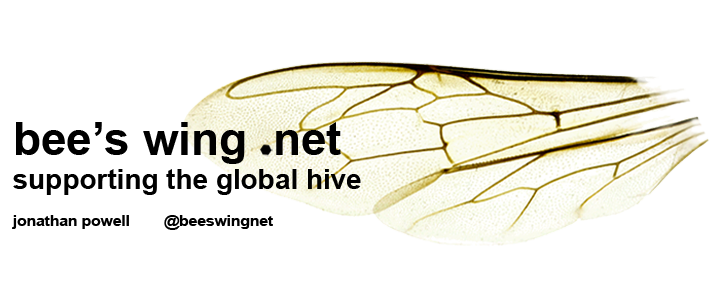We see effects in the so called "diseases of civilization": obesity, diabetes, auto immune disease, cardiovascular disease, osteoporosis, and it is estimated that one third of cancer in the USA can be attributed to nutrition (1). In the book Honey and Dust: Travels in Search of Sweetness, the author Piers Moore Ede recounts talking to the elders of a Lebanese village who said that people traveled from across the country to see the first person with cancer in the early 1900's. Our diets have changed, but our bodies remain the same.
A Paleo diet is one that attempts to get close to the food of our ancestors. Typically this means no cereal grain, refined fat, dairy or sugar and all food fresh and minimally processed. Is is difficult to define one ancestral diet as there many climates and ecologies in the world, but for the honey bee the paleo diet is much simpler to define: Honey and Pollen.
In beekeeping we often force our own mistakes on our bees. Bees are routinely fed sugar to either replace honey that is taken from them, or to avoid starvation, but is this non Paelo diet working for them? There is strong research that shows it is very detrimental to bees:
- Immune system impairment
- Increased pesticide susceptibility
- Increased infections
- More fungal and bacterial growth
- Greater viral replication
- Weaken gut performance and changes gene expression
We can't continually fix our world with short cuts. The unintended consequences stack up year after year. It is clear that to restore health we need to restore our world and produce healthier food. Restoration of the honey bee environment would be a great place start as the world of the bee is our world too.
(1) American cancer society, Cancer facts and figures 2004

No comments :
Post a Comment